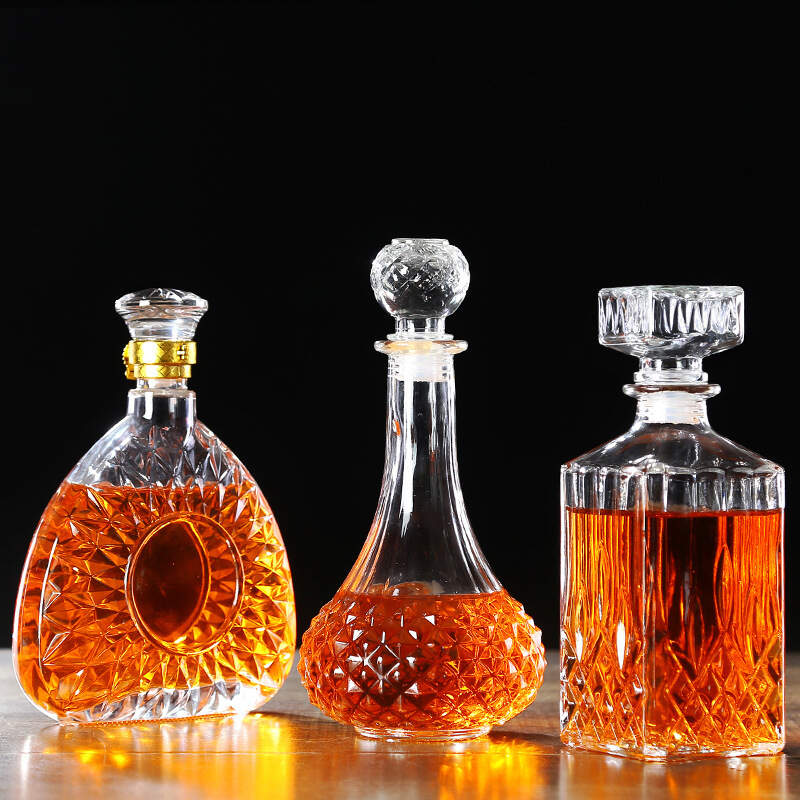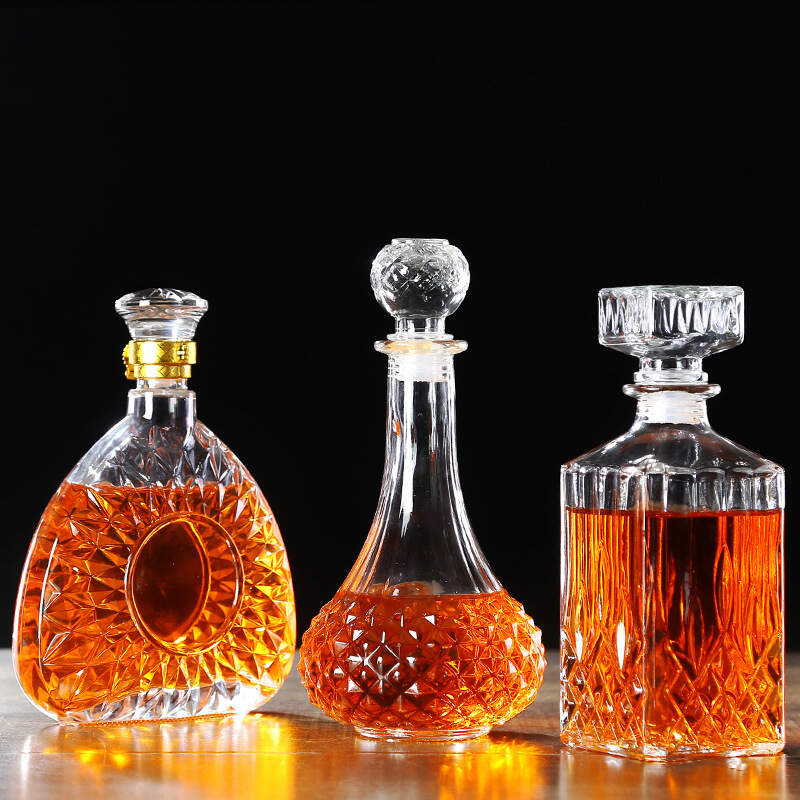Email cannot be empty
Password cannot be empty
Email format error
Email cannot be empty
Email already exists
6-20 characters(letters plus numbers only)
The password is inconsistent
Email format error
Email cannot be empty
Email does not exist
6-20 characters(letters plus numbers only)
The password is inconsistent


In the intricate world of manufacturing 750-ml heavy-type wine glass bottles, the choice of material emerges as a critical determinant of product quality, longevity, and consumer satisfaction. The nuanced interplay between strength, thermal properties, and chemical stability necessitates an exhaustive exploration of the various glass materials available on the market.
A. Varieties of Glass Materials
When delving into the manufacturing process, 750-ml heavy-type wine glass bottle producers encounter an array of glass materials. These include, but are not limited to, soda-lime glass, borosilicate glass, lead-free crystal glass, and specialized variants crafted to meet specific requirements. Each type of glass material brings forth distinct characteristics that significantly influence the bottle's performance, aesthetics, and overall value.
B. Characteristics of Each Material
A closer examination of these materials reveals a multitude of attributes crucial for producing high-quality bottles. Soda-lime glass, widely adopted due to its cost-effectiveness and adequate durability, remains a staple in many manufacturing operations. Conversely, borosilicate glass stands out for its exceptional thermal resistance and chemical inertness, making it a preferred choice for manufacturers striving for unparalleled quality and performance.

A. Strength and Durability
For manufacturers specializing in 750-ml heavy-type wine glass bottles, prioritizing strength and durability remains imperative. Materials such as lead-free crystal glass, celebrated for their inherent robustness and aesthetic allure, seamlessly align with the rigorous demands of heavy-duty applications. This inherent resilience ensures that bottles endure challenging storage, transportation, and handling conditions, thereby preserving the wine's quality and integrity.
B. Thermal Resistance
The nuances of the wine industry necessitate materials offering impeccable thermal resistance capabilities. Borosilicate glass, revered for its ability to withstand extreme temperature differentials, emerges as a frontrunner in this context. By shielding wines from detrimental temperature fluctuations, manufacturers can safeguard the wine's nuanced flavors, aromas, and overall quality, meeting consumer expectations and industry standards.
C. Chemical Stability
The intricate chemical interactions between wines and bottle materials accentuate the importance of chemical stability. Certain glass compositions, notably lead-free crystal glass, mitigate potential chemical reactions, ensuring wines maintain their authentic taste, aroma, and appearance. This relentless pursuit of chemical stability underscores the meticulous approach adopted by 750-ml heavy-type wine glass bottle manufacturers, emphasizing quality and consumer satisfaction.
A. Cost-effectiveness
Navigating the multifaceted realm of material selection mandates a judicious balance between quality and cost-effectiveness. Manufacturers meticulously assess the long-term implications of their material choices, striving to maximize value without compromising bottle integrity or consumer satisfaction. This strategic alignment underscores the industry's commitment to fostering innovation, efficiency, and excellence, driving continuous improvement and growth.
B. Sustainability
The evolving landscape of 750-ml heavy-type wine glass bottle manufacturing underscores an escalating emphasis on sustainability and environmental stewardship. Manufacturers increasingly embrace eco-conscious materials, renewable energy sources, and waste reduction initiatives, mitigating environmental impacts and promoting sustainable practices. This transformative shift reflects the industry's progressive ethos, prioritizing long-term sustainability and responsible manufacturing practices.
In summary, material selection serves as a foundational pillar for manufacturers specializing in 750-ml heavy-type wine glass bottles, profoundly influencing product quality, consumer experiences, and industry standards. By meticulously evaluating a diverse array of glass materials—from strength and thermal resistance to chemical stability—manufacturers craft bottles that encapsulate excellence, durability, and aesthetic elegance. Embracing sustainability, innovation, and consumer-centric approaches further positions the industry for sustained growth, competitiveness, and environmental responsibility, shaping a brighter future for all stakeholders involved.